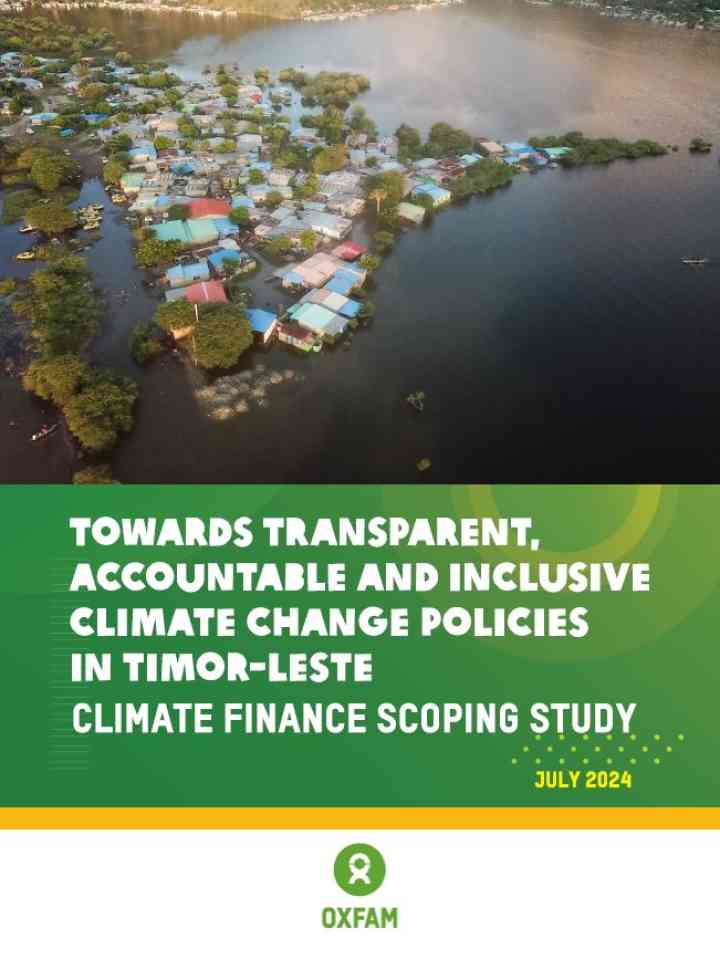Towards transparent, accountable and inclusive climate change policies in Timor-Leste
This report highlights the disproportionate impact of climate change on vulnerable groups, particularly women and people with disabilities in Timor-Leste, and underscores the importance of effective climate finance disbursement to help these communities build resilience. The report emphasizes that climate finance is critical to help these communities build resilience. It outlines how the Government of Timor-Leste (GoTL) influences climate finance allocation through its policies. The policies analyzed include the Strategic Development Plan, National Adaptation Plan, Nationally Determined Contribution, National Climate Change Policy, Zero Draft Carbon Farming Policy and Guidelines, and the proposed Climate Change Framework Law.
A key recommendation from the scoping study is the need for greater transparency. The report recommends that all climate change policies should be available in Tetum on a Climate Change Information webpage and that the GoTL should expand its direct engagement with communities on climate change. Accountability is another crucial aspect highlighted in the report. While the policy framework includes provisions promoting accountability, their implementation is largely lacking. The report recommends that the GoTL implement these accountability measures and develop a national monitoring, evaluation, reporting, and learning framework.
Explore further
